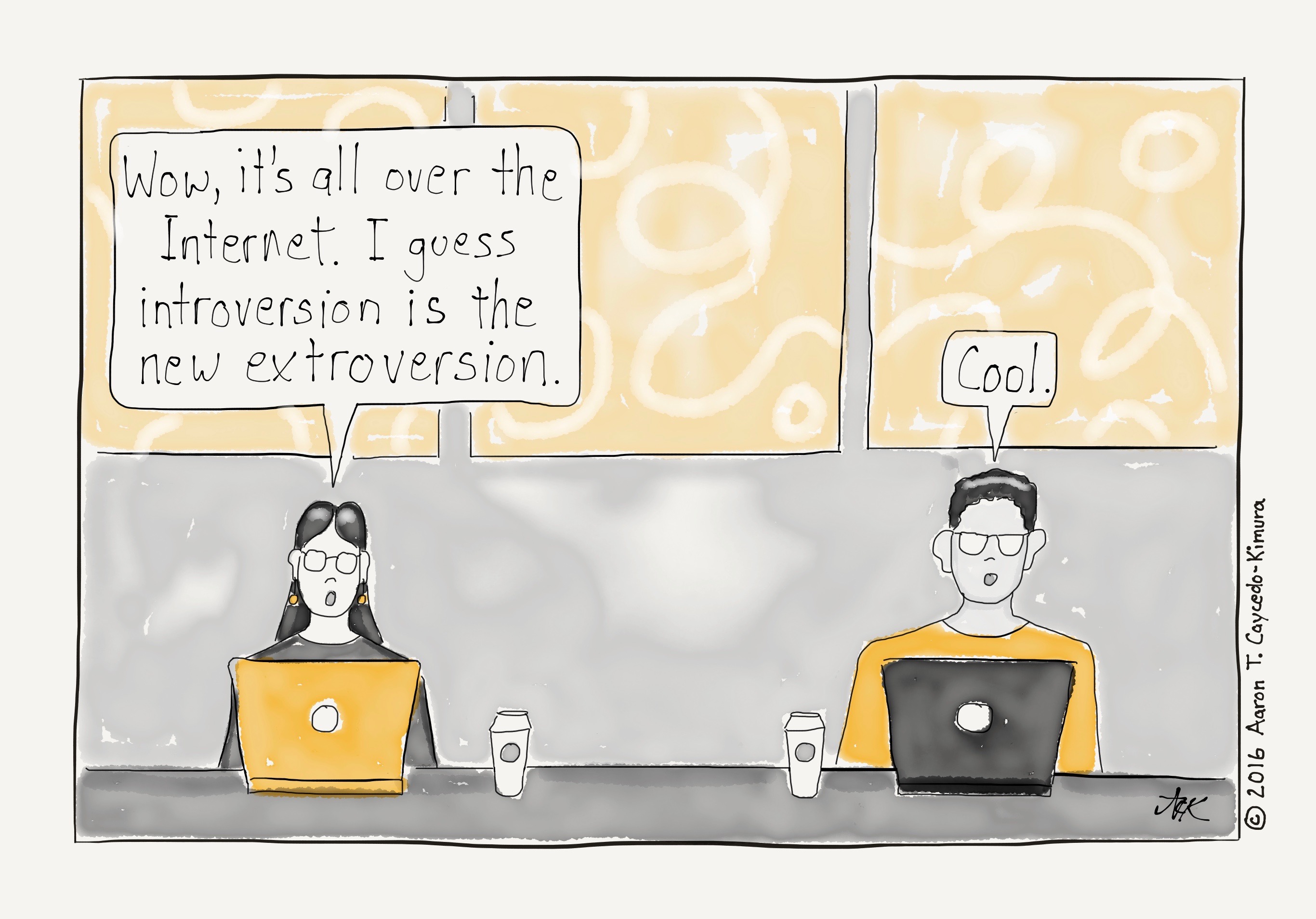The subject of introversion has come to the forefront of popular discussion in recent years with books, like Laurie Helgoe’s Introvert Power and Susan Cain’s Quiet, and with websites and online communities, such as Jenn Granneman’s Introvert, Dear and Beth Buelow’s The Introvert Entrepreneur. So one person is quiet and prefers to be alone and another is talkative and outgoing. What’s the big deal? Why all the labeling? Some people couldn’t care less and some may be downright tired and annoyed with all the fuss. But for introverts, especially those who fall on the far introverted end of the spectrum, the buzz about temperament is really quite significant. I’ll tell you why.

Natural Wiring
Introversion itself is not shyness (fear of social embarrassment) or antisocial disposition (having harmful feelings toward society). It’s an issue of temperament that is wired into the brain from birth. It has to do with where you direct your energy (inward), how you recharge (usually frequently and by being alone), and the level of outside stimulation you’re comfortable with (less is more). It’s not a weakness to overcome or something to be cured. It’s just how some of us are naturally designed.

Different Degrees
Everyone falls somewhere on the extrovert/introvert continuum. Because there are different degrees of extroversion and introversion, not all extroverts are alike and not all introverts are alike. Some introverts avoid large gatherings at all cost, whereas some introverts, who are probably closer to the middle of the spectrum, actually enjoy a party now and then. And there is no one who is purely extroverted or purely introverted; we all need a certain amount of alone time and a certain amount of interaction. Even the biggest introverts can have extroverted moments. I happen to be a huge introvert—I live my life inside my head, need long stretches of time by myself to recharge my batteries, and prefer quiet, spacious environments. But I also care very deeply about people and crave human contact.

The Big Deal
Because society generally idealizes extroverted traits, such as being gregarious and being able to quickly think on your feet and verbalize off the top of your head (introverts tend to be more reserved and generally need more time to process information), we introverts, especially those of us who fall far on the introverted end of the spectrum, may feel like there’s something wrong with us. We may have grown up feeling odd, misunderstood, alone, and even inadequate. So, for us, it’s life changing to discover that introversion is a matter of natural wiring, that there are actually many wonderful things about being introverted, and that we’re not alone (introverts make up anywhere from a third to half the population). We may even hear the Hallelujah Chorus, as we finally and fully begin to understand, accept, and appreciate the people we were meant to be. This in turn may also hugely benefit society as a whole, as we begin to embrace and make good use of those traits that make us unique, rather than trying to fit into someone else’s mold and doing it poorly.


